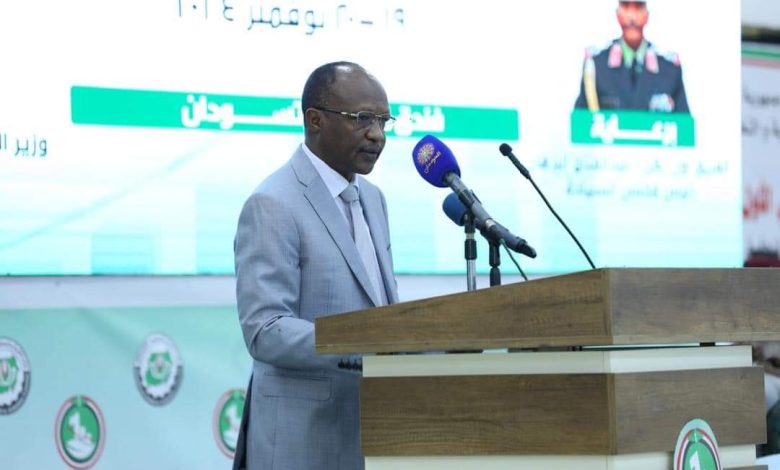Economic
Central Bank Governor: Currency Replacement Necessary to Combat Counterfeiting

Sudan Events – Reports
Barai Siddiq, Governor of the Central Bank of Sudan, described the first Economic Conference as a pivotal step in addressing the repercussions of war and its profound impact on Sudan’s economy. He stressed the importance of collective national efforts to devise practical and realistic solutions for economic recovery and sustainability under these extraordinary circumstances.
Speaking at the conference’s opening session in Port Sudan on Tuesday, the governor pointed out that the war, initiated by the rebel Rapid Support Forces militia, caused extensive destruction to infrastructure and disrupted economic activities across vital sectors. This resulted in a decline in agricultural and industrial production and rendered many establishments inoperable. He also highlighted the inflationary pressures that have destabilized the national currency.
The governor noted that widespread looting, including at bank headquarters and branches, the Central Bank, and the Sudanese Currency Printing Company, has directly impacted cash reserves and led to the proliferation of counterfeit currency.
In response, the Central Bank adopted several policies to address the war’s economic fallout. These included limiting government borrowing from the banking system, rationalizing foreign currency usage, and restoring damaged banking systems. Additionally, the bank established a $1 billion strategic commodities fund to stabilize the exchange rate and ensure essential goods are sourced through official channels rather than the parallel market.
The governor also discussed the decision to replace the national currency, describing it as a necessary measure to counter the spread of counterfeit money and replenish lost cash reserves. He explained that the decision followed thorough studies and has been implemented in coordination with economic and security entities under the direct supervision of the Transitional Sovereignty Council.
Regarding banking systems and technology, the governor highlighted significant efforts to restore damaged infrastructure, including reestablishing the national clearing system to resume banking services such as cards and point-of-sale transactions. He also mentioned reinstating the export-import system and enhancing the integration between the Central Bank and relevant ministries to streamline export operations and minimize associated risks.
To promote transparency and good governance, the governor stated that the Central Bank is updating its legislative frameworks in line with international best practices. He also emphasized the importance of forging strategic partnerships with national and international entities to improve the investment climate and support economic recovery efforts.
The Central Bank remains committed to supporting all initiatives aimed at achieving economic stability and finding sustainable solutions to current challenges. The governor called for continued cooperation and collective action to build a robust economy that fulfills the aspirations of the Sudanese people.



